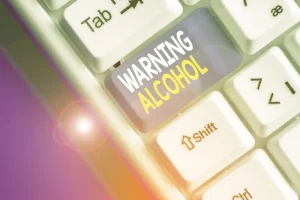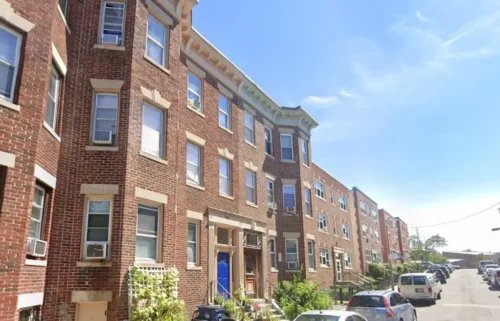These first few weeks are critical because they are when the risk of relapse is highest. Alcohol withdrawal symptoms range from mild but annoying to severe and life-threatening. Over time, however, the body builds a tolerance to alcohol, and a person may have to drink more and more to get the same feeling. Meanwhile, the brain is producing more and more neurotransmitters, making a person further imbalanced. One of the most significant benefits of giving up alcohol is that you may increase your lifespan.
Causes of Alcohol Withdrawal
Research shows that drinking large amounts of alcohol before bedtime leads to decreased sleep onset and disrupted, poor quality sleep later in the night. Excess alcohol consumption may cause weight gain, which means that cutting out alcohol could lead to weight loss for some people. For instance, Dasgupta cited research he conducted on the relationship between genetics and alcohol misuse. He noted that people of Chinese and Indian descent do not benefit from drinking alcohol due to a genetic reason that isn’t fully understood. The current Dietary Guidelines for Americans recommend that alcohol should be consumed in moderation — up to one drink per day for women and up to two drinks per day for men.
Symptoms of Alcohol Withdrawal: Timeline and Signs of Danger
- For example, damaging your liver is like scratching the back of your hand with your nail constantly until you break the skin.
- It’s difficult to predict who will and who won’t experience alcohol withdrawal — and how severe it will be.
- Each week feels like a milestone, and this week might feel like your best one yet.
- So, on the skin, this would mean a discoloured, dull complexion.’ Moreover, not only does the glucose make the skin cells abnormal, it creates free radicals.
- According to Larson, severe alcoholic hepatitis could be fatal in 30 days in half of the patients who develop this condition.
- Cognitive behavioral therapy for insomnia (CBTi), medication, or a referral to a behavioral sleep specialist can help.
Alcohol use disorder includes a level of drinking that’s sometimes called alcoholism. There are many resources available for anyone who is ready to stop drinking for good, or who wants to reduce the harm alcohol is causing in their life by cutting down. As you continue to commit to long-term recovery, support group meetings like Alcoholics Anonymous (AA) or online support communities might be helpful. Once you have gone through withdrawal, you’ll also need a plan to remain alcohol-free. Start by talking to a healthcare provider about the treatment options for alcohol dependence. There are several mild to moderate psychological and physical symptoms you might experience when you stop drinking.
Your Sex Life Might Improve
Trouble sleeping is common after you stop drinking, especially early in recovery. But the longer you abstain from alcohol and work on your sleep hygiene, the more improvements in your sleep you’ll see over time. Many people with alcohol use disorder also have other mental health conditions like depression, anxiety, bipolar disorder, or schizophrenia. A big part of alcohol recovery is taking steps to improve your lifestyle through changes like diet and exercise. If you’ve been trying to get to and maintain a weight that supports your health, quitting alcohol can help you meet that goal.
Since alcohol is a depressant, it can throw your sleep cycle off balance by slowing down your nervous system. As your nervous system speeds back up once the alcohol exits your system, you may experience sleep disruption and wake what happens when you stop drinking alcohol up more throughout the night. “Insomnia is pretty common among people who abuse alcohol,” Dr. McGrath says. That said, If you’ve been drinking excessively, then stopping drinking cold turkey can lead to withdrawal symptoms.
- “The liver has a remarkable ability to heal, and quitting alcohol can reverse some liver damage,” says Dr. Kellog.
- For people at low risk of complications, an office visit to your primary care provider, along with at-home monitoring and virtual office visits, may suffice.
- Over time, the brain can actually get used to the effects of alcohol, causing it to work harder and cause unpleasant or even dangerous withdrawal symptoms like tremors and heart palpitations.
- If you have decided that it is time to stop or reduce your alcohol consumption, knowing what happens to your body when you stop drinking can give you a better idea of what to expect.
What Happens Mentally and Physically When You Stop Drinking, According To Experts
This can lead to symptoms including anxiety, insomnia and irritability, and in more serious cases, hallucinations, seizures and potentially death. It’s no secret that alcohol plays a significant role in your liver health. Chronic and excessive alcohol consumption can destroy liver cells, which are necessary for filtering out harmful substances in our body (the liver is our built-in detoxifier). “Fatty liver is a common phenomenon in individuals who drink heavily and regularly, leading to cirrhosis and end-stage liver disease,” says Mary Wirtz, MS, RDN, CSSD. Steering clear of alcohol, however, gives the liver a chance to regenerate.
Many people who use alcohol heavily for a prolonged period often don’t even recognize the perpetual fog that alcohol creates. When you stop drinking, it can feel like entering https://ecosoberhouse.com/ a whole new world and like a fog that you didn’t even know was there has suddenly lifted. After two weeks without alcohol, the benefits will start to compound.
- When you’re ready to stop, there are lots of benefits – from reducing your blood pressure and better sleep in the short-term, to many other important longer-term health benefits.
- Anecdotal evidence suggests the effects of a detox from alcohol are gradual over the entire four-week process; so there’s not a set timeline for each to kick in at one time.
- But you’ll need to be honest about how much you drink and how often.
Other medicines, counseling, and psychosocial support can also help to abstain or reduce unhealthy drinking. The important point is that one must be aware of the bad consequences of drinking and take steps to stop or reduce excessive drinking. If you’ve stopped drinking and still can’t sleep, talk to your provider.
Legal Conditions and Terms
If you’re seeking help for yourself or a loved one, our expert team is here to guide you every step of the way. Even deciding to become sober and following through on it can be a powerful catalyst for repairing relationships, demonstrating how serious you are about focusing on others. Relationships are complicated, and each one will develop and heal in different ways and timeframes. Stopping alcohol, however, can make healing possible that would not be otherwise. She has experience covering all things health, fitness, nutrition, and wellness and adheres to the highest journalistic standards. It’s important to be honest about your alcohol use — and any other substance use — so your provider can give you the best care.
Will I experience withdrawal symptoms if I stop drinking?
You may also consider joining an online support group to help you feel less alone. You can also use the National Institute on Alcohol Abuse and Alcoholism’s Alcohol Treatment Navigator to search for a substance use treatment center near you. For snacks, choose foods that are high in carbohydrates, such as pretzels, crackers, or apples, which can help satisfy cravings. Remove all alcohol from your home or ask a friend or family member to do it for you.









